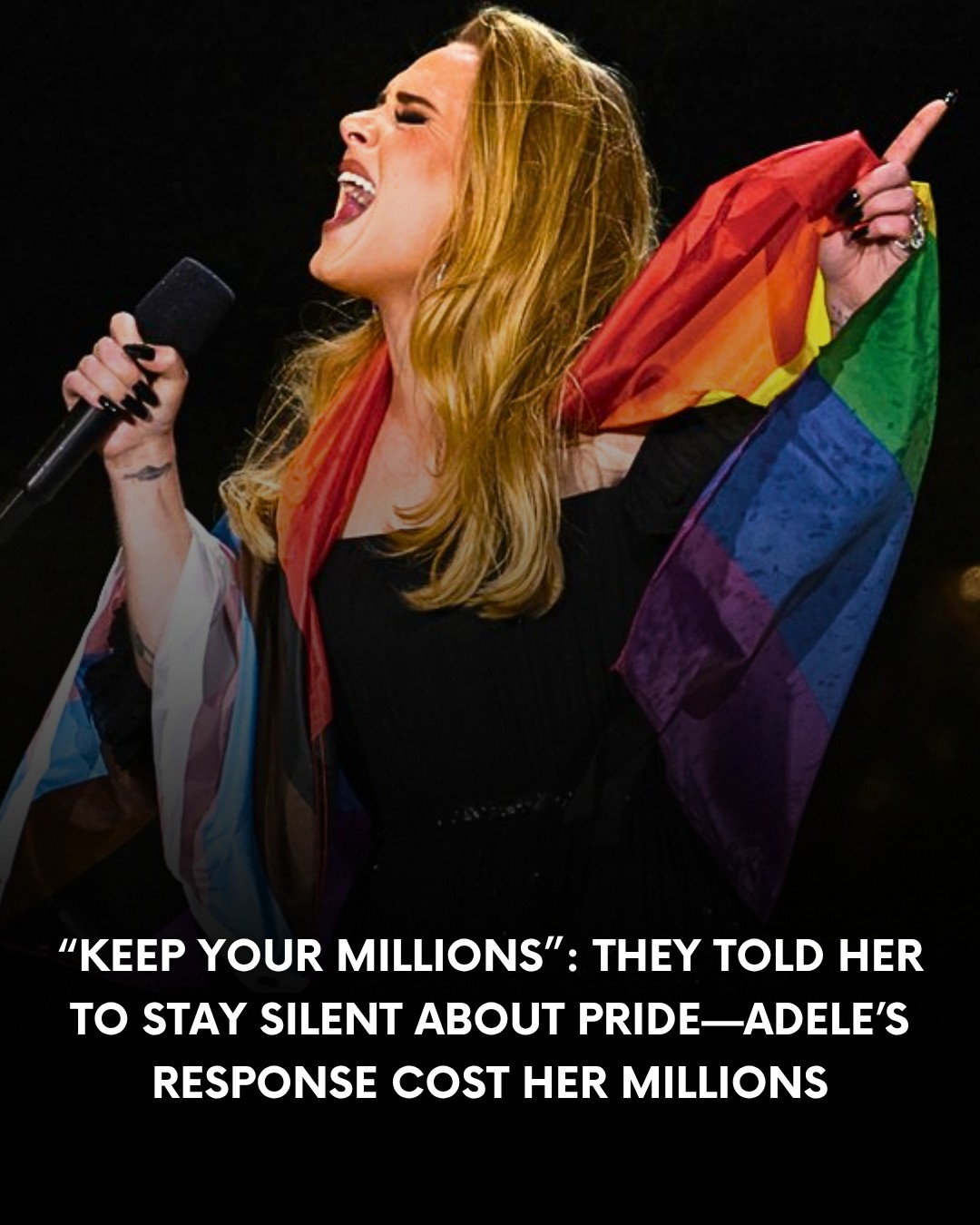In a world where silence is often bought and sold, Adele chose her voice. And in doing so, she made one of the boldest moves of her career—not behind a microphone, but behind closed doors.
In early 2024, a top international fashion conglomerate approached Adele with a lucrative offer. The deal: a global ad campaign worth $15 million, plus royalties. All they asked in return was that she remain “neutral” in public messaging during Pride Month. No rainbows. No statements. No subtle nods to the LGBTQ+ community.
To many, this might have seemed like a standard clause, a calculated branding decision in sensitive markets. But to Adele, it was personal. Sources close to her say she didn’t hesitate. She looked the execs in the eyes and said:
“If my silence is worth millions to you, it’s worth nothing to me.”
For someone who has long stood as a beacon of authenticity and emotional truth, the request struck a deep nerve. Adele has never been one to chase commercial approval at the expense of human dignity. Throughout her career, she’s embraced the LGBTQ+ community—not as a strategy, but as a matter of the heart. Many of her closest friends, collaborators, and lifelong fans are members of the community.
“She’s always known who’s been there for her,” one longtime friend shared. “And she’d never turn her back on them—not for a million, not for fifteen.”
What makes this story so powerful isn’t just the money she walked away from—it’s what she stood up for. In the weeks following her rejection of the deal, Adele didn’t go public with anger or outrage. Instead, she posted a single Instagram story during Pride Month: a photo of her laughing with drag queens backstage after a show, with the words:
“I didn’t start singing for silence.”
The post went viral in hours. LGBTQ+ leaders, artists, and fans praised her quiet act of resistance. The hashtag #SheSaidNo trended globally. Even those who hadn’t been fans of her music before were moved by her stand.
Her label reportedly offered to smooth things over—to find a compromise. Adele refused. She later told a close associate:
“I’ve got enough money. What I don’t have enough of is reasons to be proud of myself.”
And this—this is what sets her apart. In an industry so often driven by numbers, algorithms, and image management, Adele reminded the world of something simpler: integrity.
Since then, other artists have come forward with similar stories of being asked to tone down support for marginalized communities. Few have spoken openly. But Adele’s quiet bravery has ignited a broader conversation.
“Sometimes the strongest protest,” one fan tweeted, “is the paycheck you don’t take.”
Adele has yet to do a full interview about the ordeal. Perhaps she never will. But her actions have already echoed louder than any headline.
In an age of curated activism and brand-safe allyship, Adele made a choice that wasn’t safe. It was raw. It was real. And it reminded us all that even in the shadows of boardrooms, music can still change the world—without ever being sung.
Because when Adele said ‘no,’ millions heard ‘yes.’
Yes to truth. Yes to pride. Yes to never being bought.

Leave a Reply